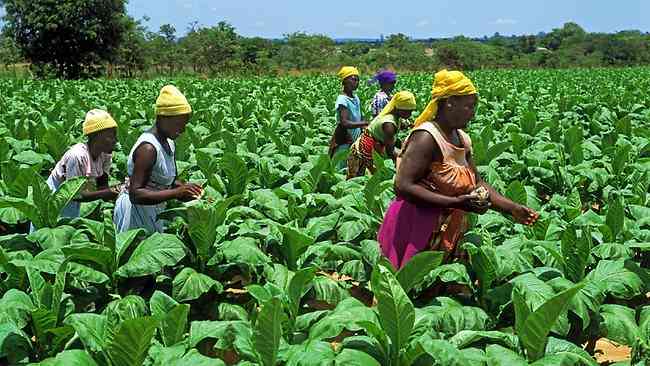
TOBACCO farmers should remove all stalks before the onset of the upcoming seedbed production phase while making sure that they practice crop rotation in their fields, an agronomist has said.
The farmers have been accused of ignoring the order to destroy tobacco stalks after reaping, allowing re-growth, which results in the spread of pests and diseases.
They are, however, expected to comply because the danger of non-compliance leads to the spread of diseases and pests.
In an interview with NewsDay, a senior agronomist Lazarus Gatawa called on the tobacco farmers to remove stalks before the onset of the seedbed production period.
“Farmers should embrace crop rotation and hygienic practices in seedbeds for effective eradication and prevention of the spread of pests and diseases.
“Pests that can be prevented by stalk destruction include aphids and mealy bugs. Diseases that will be prevented include Angular leaf spot, Black shank and Tobacco Mosaic Virus,” he said.
Gatawa said the Plant Pests and Diseases Act (Chapter 19:08) made it mandatory for farmers to destroy all living tobacco plants by the May 15 deadline every year as failure to do so attracted a heavy fine.
“Tobacco stalks pass on diseases to the next season if not completely removed. A diseased crop is vulnerable to the effects of drought and has low capacity to adapt to long dry spells that are associated with climate change events thereby reducing the final leaf quality and yield.
- Chiefs to supervise food aid distribution
- ‘Poverty fuels teen pregnancies’
- We are now ripe for the grand stage: Mazwi
- Govt targets to put 350 000ha under irrigation
Keep Reading
“Removal of stalks and early land preparation are key interventions that farmers can do to help them increase their tobacco production to 3 tonnes per hectare yield levels in the face of uncertain weather conditions,” he said.
Gatawa said agricultural extension officers in tobacco growing areas should also play their part in the stalk destruction awareness programmes.
“The local leadership including councillors, village heads, farmer associations and youth, women leaders should take a leading role in the programmes,” he said.











